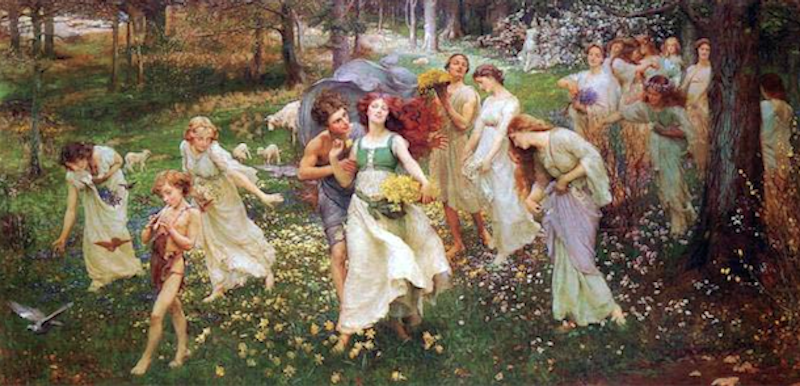“Fuck it,” she said, and pulled herself out
from beneath the 39 piles of galoshes,
the 72 box spring mattresses with springs poking,
the leaking sludge of the master's thesis, abandoned seven years ago;
from beneath
the tipped-over mass grave of hope,
blank-eyed corpses dumped above her life
because where else would they go?
From beneath raddled umbrellas and x-eyed dead cats and a Volvo's chassis that had a plastic bag (from the groceries) caught where a tire should have been. The plastic bag was made out of noisy material and used to have tomatoes, and something was streaked about inside it, lumpy and wet. The edge of the Volvo chassis, where the bag was caught, had rust.
From beneath unwanted paperbacks and the ex-boyfriend who stopped writing back. From beneath the professor's article she hadn't understood. The fake Chinese vase, the bad furniture that came with the place you didn't want to stay.
From beneath... “Fuck it,” she said, because here she was counting up rather than crawling out from under. She wasn't going anywhere, she was taking inventory. “Fuck it,” she said, and the mass settled atop her. She contemplated what was necessary to get out from underneath.
Meet the author. Pelleus, Roman poet of the first century AD and some of the second. His admirers are many. “He wrote about cinders in the heart, he wrote about that smart thing you say. He would have written about gin games and too many cigarettes if they had been around,” Dorothy Parker confided to readers of The New Yorker. Another fan was Douglas Adams, author of The Hitchhiker's Guide to the Galaxy. “To mistake everything and to muddle your mistakes into an overwhelming and awkward and resplendent Ball of Rightness,” he said in an interview, “is to me the mark of a real talent and the sort of thing Pelleus did while trying to find his sandals.”
The poet's following extends beyond the militantly clever. Pelleus was a suicide and beloved of Romantics and romantics, to recall Goethe's phrase. The son of a Spanish Roman father and a Syrian mother, he has been revived as a sleekly androgynous, dark-eyed, multicultural figure in Fellini's Augusto and Sofia Coppola's Marble Fawn. He may be the only one of the Roman poets to feature on posters and popular t-shirts, which have sported a lithograph of his hollow-cheeked likeness (the Sangarios Bust) since the 1970s.
As a very young man, Pelleus was a favorite of the Emperor Domitian and of the smart fashionables who populate any imperial center. He was the new thing and he delighted by being unexpected, perhaps at the cost of a willful airiness. Stinging, askew, resentful and ruminative, his verse found and pulled at unsuspected nerve endings in its listeners' consciousness. So it does today.
The work presented above is a translation by Matthew Hamilton-Gracie, OBE and winner of the Harcourt/Black Lamb Prize for Emerging Poetics. His aim, famously achieved, was to recapture the original Pelleus in a modern idiom.

